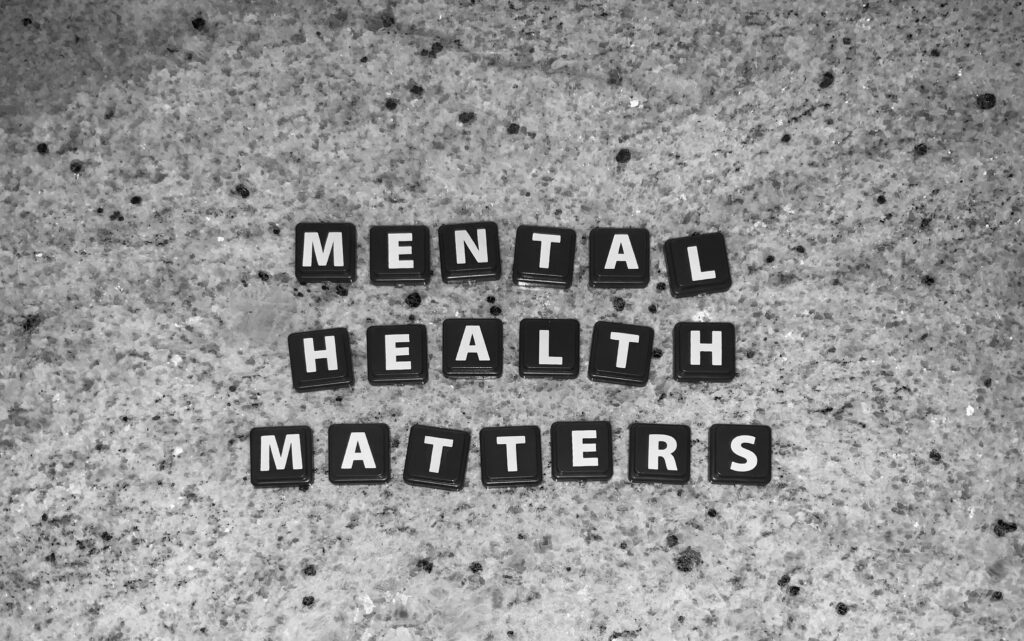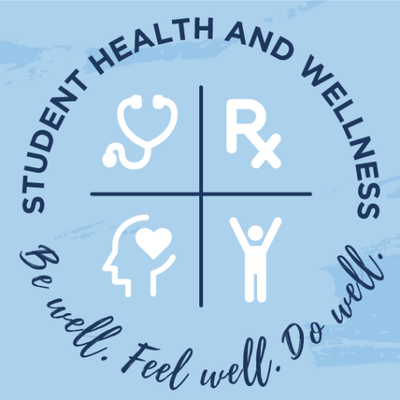
In this first episode of The College Chronicles, I had the opportunity to interview Sydney Gagnon, a current sophomore planning to study sociology and journalism, and Eva Burchfield, a current senior studying actuarial science. Sydney is an intern for the podcast called Holistic Huskies where she facilitates an open conversation about various mental health struggles that college students may face in their careers. Eva Burchfield is the Mental Health and Wellbeing coordinator for my sorority, Alpha Omicron Pi, where she remains available for support in any way that the sister of Alpha Omicron Pi may need. In talking with both Sydney and Eva, I was able to learn about different ways that students in college can deal with and talk about various mental health struggles. In this podcast, both Sydney and Eva give powerful testimonies about their personal struggles and why they choose to give back to the community in such an impactful way. Listen to the podcast below to hear more about their stories!
Transcript:
Emily Markelon:
Hi, I’m Emily Markelon, and this is The College Chronicles.
College. The best four years of your life, right? That’s true for some people, but many students also struggle with mental health problems throughout their academic careers. I’ve had anxiety for as long as I can remember. In coming to college for the first time, many of my struggles with anxiety became more intense. I struggled with comparison, balancing my school work, balancing my social life, you name it.
I’m a double major here at UConn, and I’m also involved in many extracurriculars and clubs, including my sorority Alpha Omicron Pi, Her Campus, and the First Year Experience Program. But being involved in many things means that I must learn how to balance all my responsibilities. In this episode of College Chronicles, come along with me as I take you through a day in my life and tell you about the different ways that I balance my mental health and my busy college lifestyle.
*music*
My first class of the day is journalism news writing. This class is very writing intensive, so I need to be present both physically and mentally so I can get the most out of it and perform to the best of my abilities on the various essays throughout the semester. Being able to clear my head with some fresh air helps me to make sure I am in the best mindset possible.
From this class, I head straight to my Natural Resources class, which happens to be across campus. Although the walk is far, being able to walk outside between my classes helps me to give my brain a break before my next class.
After my second class, I have a break for about two hours for lunch. During this time, I usually try to avoid doing homework to make sure that I give my brain a rest before my last two classes in the afternoon. I take this time to talk with friends, go on a walk around campus, or just head back to my apartment to recharge.
However, these mindfulness methods might not work for everyone. Thankfully, I had the opportunity to talk with two students from UConn. Firstly, Sydney Gagnon is a current sophomore here at UConn, planning to study sociology and journalism. She’s also an intern for a podcast called Holistic Huskies. This podcast, run through Student Health and Wellness at UConn, is a platform where students like Sydney can share their experiences with mental health.
Because of this deep connection with mental health and well being, I knew that Sydney would be able to give me advice on how she deals with her mental health. I really like to kind of just clear my head by going outside. I think that nature is like a pretty reliable healer. Or if you’re having like an overwhelming day or if you’ve had a rough week or a rough month, I think sneaking in some time outside to just kind of clear your head and separate yourself from all of your stressors, work, school, family, whatever it may be.
Sydney Gagnon:

I think if you just take some time, get some fresh air, go for a walk, or Even like read a book outside, I think just like being not inside can definitely like help a lot. And another thing that I do in addition to that is I like to listen to music a lot and I think that if you listen to the right genre then it will definitely like cater to your feelings and I think you can get some relief from that. Sometimes I like to listen to music that’s from childhood so it’s like nostalgic and kind of brings me back to a simpler time and after that I’m able to like refresh and kind of just level my head.
Emily Markelon:
I also had the opportunity to sit down and talk with Eva Birchfield, a current senior actuarial student here at UConn. She is the mental health and well being coordinator for my sorority Alpha Omicron Pi.
Eva Burchfield:

What I love about this position is there’s a lot of freedom for me to do what I want to do. And so one of the things I like to do is I send daily affirmations in a group chat called Positive Pandas because our animal is a panda. So I have that where I send different affirmations and just fun quotes to motivate all of the girls. Another thing I like to do, I try to do once a semester is just like a little goodie.
So last semester I made a mental health goodie bag. It had different stickers, face masks. A little toy, you know, just different things to cheer up the girls. And then this semester I handed out crocheted flowers and the way that I did that was I put out a form and I said to please fill it out and write down either one good thing you did for yourself this past week for mental health or something you did for someone else. And all, I got a lot of people to participate. Almost 50 girls filled out the form, which was really cool. And then I was able to pass out the different crocheted flowers and it seemed to really make people happy, which is my goal. So that was awesome.
Emily Markelon:
One of my main questions for Sydney and Eva. Why do they, as busy college students, take time out of their day to be advocates for mental health?
Sydney Gagnon:
One of my main values as a college student is learning about mental health and finding ways to break the stigma of talking about mental health. And Holistic Huskies is kind of exactly what that is. We have guests who want to share their stories about their mental health and anything that, you know, ties in with how their mental health is as a student, as a faculty member. So we kind of like to facilitate an open conversation about it, and that’s something that I think is really important to everyone. I feel like it’s a topic that has a lot of stigma around it, and sometimes it’s hard to be able to open up about it and seek support. One of the main things that I wanted to do when I applied was to make sure that everyone has a voice about what they’re struggling with and kind of just making it less of what seems to feel like for people a burden. A lot of people don’t really think they need to reach out to people for mental health, but our podcast kind of likes to encourage that and make it, you know, a healthier thing to do.
Emily Markelon:
Eva shared a more personal story about why mental health advocacy is important to her.
Eva Burchfield:
My biggest inspiration, one of my biggest inspirations is definitely my dad. He’s been sober for 13 years now and he had his own struggles with mental health. He had anxiety and depression and the way that he dealt with that was self medication, which of course is really sad and he had an addiction and so that wasn’t. Obviously the right way to do it but at the time like I had mentioned earlier there was a big stigma against mental health and going to therapy and so he was like I don’t really know what these feelings are so let me do this because I feel better when I take this pill or I drink this alcohol. And so, he learned so much from that experience and he was actually a politician back in this time for my state and he actually — during this time of his addiction and just we were struggling a little bit for money as a family — and so he accepted a bribe for like a land zone and so he went away to federal prison in Maryland.
And as much as obviously that was a sad time my family and I we all say it was the best thing that could have ever happened for us because when he went away he got sober he started working out he was very overweight and he like started working out and he’s just He’s been sober 13 years, he’s my biggest inspiration.
And he, he’s taught me everything I know about the tools in my tool belt and just wanting to help people and the way that he reaches out for people to help them with their sobriety, like, I feel like my purpose in life is to reach out for people to help with mental health. And so that’s something that is really important to me, both inside of my like little duty in AOPI, but also just with my friends, a lot of my friends at school, I’ve helped get into contact with different therapists, whether that be through their insurance or through UConn and just trying different tools in our tool belt.
Emily Markelon:
Although Eva explains seeing her father go through a lot when she was growing up, she herself is no stranger to mental health struggles.
Eva Burchfield:
Starting for me, really the beginning of the pandemic is when I first was in touch with the fact that I definitely had anxiety. But the biggest struggle that I went through was not this summer, but last summer. And I found myself in a really dark place with my anxiety. The way that my anxiety often manifests itself through is like guilt. So I like go down this rabbit hole in my mind and I come up with all these different things and like I pick myself apart. And so I dug myself a really deep hole last summer and I was really struggling.
It was hard for me to even leave like my bed. Like I want to like stay in bed because it was like the comfort of being in bed, but I was so anxious that I couldn’t just sit there. So I had to get up and it was just, it was a tough summer, but I had the support of my parents, which I’m very fortunate that I’m very close with them. But, um, also my friends, my boyfriend.
But what helped me the most was going to therapy and just talking through those feelings and learning that I’m not alone, which is something that I often felt was like, there’s no way anyone else feels like this. Like, I know people have anxiety, but to have it feel so debilitating, like, there’s no way anyone else feels this way, when in reality, unfortunately, I’m not alone, but it’s, it’s comforting, of course, to know that you’re not alone. Not that I want people to feel that way, of course.

But, um, yeah, it was a really tough summer for me, but what I learned through that summer is it’s important to talk through and heal the thoughts that you’re having and those feelings. I also learned, at least for me personally, that I can’t go down a rabbit hole and keep digging and digging and digging at something that I already talked through. It’s okay, and I have to learn that it’s okay to make mistakes. And sure, there’s things that I remember from five years ago that I’m like, oh my god, I’m this awful person. But It’s okay to, you know, ask forgiveness, talk through it, and when people forgive me, I have to learn that, okay, it’s okay, I’m forgiven, it’s just learning that it’s okay to make mistakes, and that as long as you’re learning through those mistakes, and you’re working to be better, then So be it.
And so, from there forward, I became really a mental health advocate to help not only myself but others and help them get the resources to feel better.
*music*
Emily Markelon:
Understanding how to use your free time to do things that make you feel good is a learned skill. Your brain can only take so much at a time, so knowing when to give yourself a break and do things that make you happy will be the most important thing for your mental health. So now that I’ve taken my break for the day, I’m going on to my next two classes for the day: The Environment and German Culture.
There are days when your brain needs more than just a two hour long break between your classes. That’s why it’s important to listen to your brain when it needs that extra rest. During these moments, I also suggest talking to someone that you trust and having those open conversations to help break the stigma around mental health.
Sydney Gagnon:
I think it’s really important because if we don’t have a conversation about our mental health, then we’re kind of just left in our own head, right? And that’s something that I’ve struggled with personally, and I think that’s maybe another factor why I wanted to be involved in the podcast, because I kind of experienced it myself, and I know how hard it can be for other people.
I think the first step to having some sort of relief, seeking support, is to talk about it. And as long as you’re, you know, like verbalizing your thoughts and feelings, and sometimes it can become more clear to you, and I think that’s something that a lot of people don’t necessarily like prioritize, but if we have more conversations about it and we make it more of a norm to talk about it, then I feel like a lot more people will be more open to opening up and start to, you know, improve their lifestyle, improve their well being, and you know, ultimately have a happier experience.
Emily Markelon:
This idea of creating and sustaining a space where vulnerability and trust can thrive is something that Eva also emphasized in her interview.
Eva Burchfield:
It’s important to facilitate these conversations because a lot of the time, I wouldn’t say as much lately, but a lot of the time there’s been a stigma around mental health and people not wanting to get help or not even knowing necessarily what’s wrong and not knowing how to fix it.
And so my, my main goal is to bring awareness and it’s okay to ask for help no matter who you are. and what your situation is and that there’s access to anything, even if there’s not necessarily the funds to do so, whether that be through UConn because it’s all for free. And then there’s also just like journaling. You don’t even necessarily need a journal. You can just get a piece of paper and start writing. You can type it in your phone if you have a phone, just anything like that. And it’s just to make it accessible for everyone to help them feel a little better.
And my number one thing and something that my dad always taught me was my anxiety isn’t going to go away, but it’s just learning how to deal with it and, you know, you know, overcome it. And it’s okay to feel a little anxious, but we learn how to deal with it and we could still have a good life and learn how to manage it.
Emily Markelon:
Eva also explains that it’s important to recognize that not everyone needs the same thing when it comes to their mental health because everyone experiences mental health struggles in different ways.
Eva Burchfield:
Mental health is something that’s really important to me. My main goal is to help people get help in the way that they want to and meet them where they are. So one of the resources I have is this master document and it has different, I like to call it my tool belt. So I have different tools like on my tool belt that I put in this document that people can utilize.
So for example, there’s the link to Shaw, which is student health and wellness, and through UConn, and that is where you can book a therapy appointment with a licensed therapist, which I referred many of my friends to even outside of the sorority. It’s a great program. I also have links to just different journals that people can use, because journaling often helps people with their mental health.
I have different resources such as apps, like there’s this app where they send you daily affirmations, and that’s something that I really enjoy because it just pops up on my home screen and it’s always changing and it’s just, some of them are funny, but it just, It gives you a little laugh or makes you smile and so my main goal is to just meet people where they are and really try to help them do whatever works for them for their mental health.
Emily Markelon:
As I concluded my long day of classes and my interviews, I was left with one last question about where to go from here. What specific resources are available to students who may need that extra support?
Eva Burchfield:

Like I had mentioned, the Student Health and Wellness at UConn is a great resource. Although I haven’t used it personally because I’m very fortunate that I do have therapists outside of UConn, but that’s a great resource that many of my friends have used and continue to use.
Emily Markelon: This resource is popular among many students on campus because of its accessibility and convenience. However, Sydney brings a new resource to the light, a program called Let’s Talk.
Sydney Gagnon:
Through Student Health and Wellness, there is um, a program called Let’s Talk. It’s basically mental health office hours, and this is different from the services in the Arjona building or like actual clinical help that you pay for, and that’s different from Let’s Talk because Let’s Talk is free.
Depending on the hours of the day. There’s mental health professionals that are available to talk to students. So it’s more of like an informal setting where you can talk to someone and you don’t necessarily need a mental illness to like really seek that support. If you need it, it’s there.
Emily Markelon: Sydney concludes by explaining some initiatives that she wants to implement into the podcast as she takes a more hands-on role next semester.
Sydney Gagnon: This upcoming semester, I’m going to be more like a coordinator role, and we’re hiring four new interns so we have more people on the team so we can make more content. So I would kind of be on like a management side for that and making sure that everyone has the resources that they need, and if they need help then, um, I’m there. I want to definitely have more diverse stories on the podcast so that other people who are listening to the podcast can, you know, hear something that maybe they can relate to that they haven’t heard in other platforms before to really make it a more inclusive environment. So people are more comfortable with talking about something that maybe they think that is not an issue for other people, but in reality, it is.
Emily Markelon: Mental health is a sensitive topic for many people, especially college students. However, creating an emotionally vulnerable space for people to talk about their struggles is essential for lessening the stigma around mental health. Thank you for tuning in to The College Chronicles. This is Emily Markelon, and I’ll see you soon.
*music*
Links to Further Research: